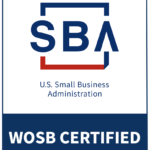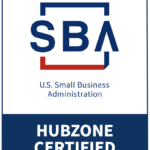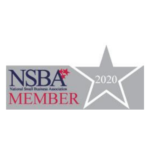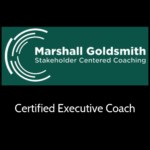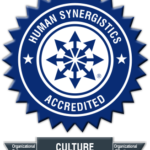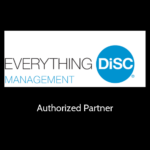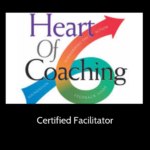“Leadership is a two-way street, loyalty up and loyalty down. Respect for one’s superiors; care for one’s crew.”
~ Grace Murray Hopper, US Military Leader, Mathematician, and Educator
Nervousness, anxiety, preparation, unknowns and unfamiliarities can damper an emerging leader’s opportunity to share their talents and skills with an executive and/or the executive team. Sometimes having a natural ability to be comfortable around authority and higher management or executives proves to be a bit stifling for those up-and-coming leaders who have yet to experience this level of visibility.
Emerging leaders may exhibit three levels of skills during this newfound learning curve of interacting with executives: unskilled, skilled, and overused skills. Let’s take a brief look at each:
Unskilled
- Appearing nervous and tense, fearing making a mistake
- Losing composure or getting rattled
- Lacking proper preparation due to lack of knowledge, skills, or experience
- Not understanding how to impress or influence senior leaders
- Not understanding what senior leaders are expecting or looking for
Skilled
- Comfortable with senior leaders
- Delivering clear, concise presentations
- Understanding how senior leaders think and work
- Designing and communicating approaches and strategies that are seen as appropriate and positive
- Speaking senior leader language and responding in a timely manner to their requests and needs
Overused Skills
- Managing up too much
- Appearing too political or ambitious
- Spending too much time with senior leaders and being too dependent on them
- Simply parroting senior leaders’ positions
- Overestimating the meaning and usefulness of their relationship with senior leaders
- Disclosing confidential information
Emerging leaders who thrive have experienced a variety of situations such as: time constraints of senior leaders; being asked tough questions with expectations of timely and quality responses; being tested to see what they know; being intentionally pressured to see what you are made of, and more.
The irony is… executives were once in your shoes. It is often perceived that the higher up a person gets, the less time they have – to be strategic, be patient, to support, to solve problems, etc. Research shows that successful higher level managers made more mistakes on the way up than people who didn’t get there.
Here are 10 tips to help emerging leaders overcome the transformations required to become successful executives and authentically connect with ease and grace when presenting to senior leaders.
- Keep Your Cool. Breathe. Be a Sponge – The key is to allow the opportunity to drive a positive and motivational experience. Knowing your style and understanding the expectations and audience are key. During the experience, look at this as a chance to unfold the best in you, tell your story well, and enjoy the interaction. If you are anxious remember all you can do is the best you can do. Just be present, respect and enjoy the process, and give it your best.
- Develop Assumptions and Worst-Case-Scenarios – List your assumptions, what you think they may ask you, what may happen/or not. Envision yourself handling each and every one of these scenarios that are creating anxiety. Deal with them, create contingency plans and “what if” scenarios so you are prepared. This tactic will boost your confidence.
- Practice, Practice, Practice – Rehearse what you are going to do, say and use, several times over. Have someone critique you and provide feedforward on how you can do even better. The more you practice the better chance you have at successfully handling all the assumptions and worst-case-scenarios.
- Familiarize Yourself – Visit the location. Understand and familiarize yourself with some of the logistics so you lessen the worries of the unknowns. Find out about the equipment, computers, audio/visual and such so you are fine tuned before the event. Dress appropriately and comfortably.
- 80% Planning – Be efficient. Plan what you need to do. Create an action plan and checklist. Print and pack a few extra handouts just in case. Provide content that drives them to interact and engage with purposeful questions that allow you to share key information. Plan to finish earlier than planned – about 3-5 minutes ahead of schedule.
- Prepare for the Unknowns – Senior leaders will ask tough questions. Prepare. Be ready for Q&A. Do NOT fake an answer. Most senior leaders will tolerate “I do not know. I will get back to you (by X date or X time) with an answer.” Reply with logic and problem analysis. If rejected, do not argue. If this happens, draw the person out to see if you have been misunderstood and clarify. If not, do not argue, let the disagreement be. Listen carefully, and respond with logic in 30 seconds or less.
- Connect to a Confidant – Ask a senior leader you know and trust to provide advice on how you could feel better and perform more effectively when you interact with senior leaders. Share your concerns and your feelings about the opportunity. You can also find someone who has gone through this recently and ask them what they recommend.
- Understand What Makes You Comfortable and Uncomfortable – Get to know what may or may not trigger you in these types of situations. Write out a list, review it to understand why and develop a strategy for being able to be cognitive in the moment so as to be more thoughtful, adaptable, and resilient. By being cognitive you provide yourself the ability to be more decisive and clear with your responses and behavior.
- Network – You may not be acquainted with a few or all of the senior leaders. Try to meet and interact with them in informal settings like receptions, socials, athletic events, charity events, off-sites and more. Most likely, you will learn – they are just people too. Prime yourself to take nothing personal through this process. The goal here is to interact and engage where they are and with them for a few moments to connect and introduce yourself. Let the discussion evolve naturally. Remember to be respectful of their time, even when you return back to work.
- Do Your Research – Learn more about them by Googling them, or read their bios on the company website. Seek to understand the key initiatives they have been accountable for and the dynamics of each. This will help you better understand your audience, be more familiar with who they are and what they may be expecting.
A few other recommendations for emerging leaders seeking to climb the ladder of leadership:
- Serve on a junior board or shadow board
- Offer to write a proposal for a new policy, process, mission, charter, product, service, or system. Present and sell it to senior leaders
- Ask a senior leader to be your mentor
Harris Whitesell Consulting’s Emerging Executive Program is a customizable, intensive program designed for top emerging leaders who are being groomed for executive roles.
Harris Whitesell Consulting, L.L.C. is a global consulting company. We are on a mission to help successful people and organizations become even more successful. We provide excellence in management advising, developing and coaching. We earn our customer’s trust.
Call us today to talk about how we may help you create measurable value, growth and opportunity for you, your team and your organization.
833.848.7845 | www.harriswhitesellconsulting.com | info@harriswhitesellconsulting.com


